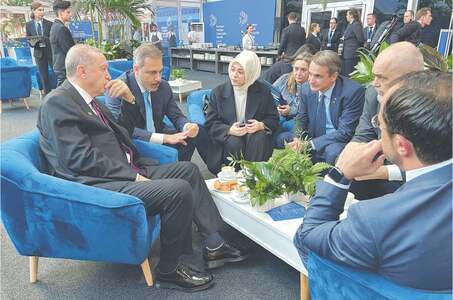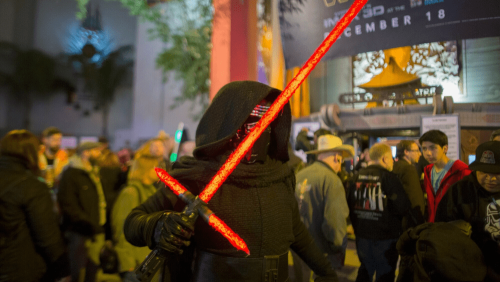
CAIRO: The wives of two Egyptian Coptic priests, forbidden by the Church from divorcing their abusive husbands, desperately sought another way out by converting to Islam. When their intentions were discovered, police handed them over to the Church and since then their whereabouts are unknown.
The cases caused a furor at home that spilled over the borders and turned deadly when al Qaeda in Iraq cited the women as the reason behind the bloodiest attack ever on the Christians in Iraq – a five-hour siege of a church in October that left 68 people dead.
It was a stark example of the schism between Christians and Muslims that runs through the Middle East and periodically erupts into violence.
''Amid the current sectarian discord, the timing is perfect for al Qaeda to show it is defending Islam and to exploit the situation to rally extremists against the churches,'' said Ammar Ali Hassan, an expert in Islamic movements.
Both Wafaa Constantine, 53, and Camilla Shehata, 25, lived in remote rural towns and enjoyed prestige as devoted and pious wives of conservative Coptic priests. But behind that veneer, a lawyer and a church official said the women were trapped in abusive relationships.
Both tried to seek a divorce through Church channels, but hit a dead-end because the Coptic Orthodox Church forbids divorce, a rule enforced even more strictly against the wives of priests. And they decided to rebel, not only against their husbands, but against the whole religion.
They sought to convert to Islam, something viewed as a disgrace in their community. The Coptic Church considers those who convert to other religions such as Islam dead, making the marriage contract invalid.
Though Egyptian religious authorities say the women never succeeded in converting, the controversy in both cases escalated with angry protests by Egyptian Christians, who accused Muslims of abducting the women and forcing them to convert.
That in turn galvanized Muslim hard-liners in Egypt who protested and accused the church of holding them against their will and forcing them to convert back to Christianity.
Al Qaeda in Iraq turned it into a cause célèbre when it cited the women as the reason behind the Baghdad church siege. The group followed with more threats against Iraq's Christian minority, creating such fear that most Christmas celebrations in the country were canceled.
Egypt's Christian minority, estimated at about 10 per cent of the country's 80 million people, has grown more religiously conservative over the past three decades as has the country's Muslim majority.
Egypt's Salafi movement – extreme conservative Muslims – have long accused the Coptic Church here of conspiring to ''Christianise'' Egypt. Though Salafis in Egypt reject violence; their doctrine is only a few shades away from groups such as al Qaeda. These groups adhere to a strict interpretation of Islam that supposedly is a purer form of Islam said to have been practiced by Prophet Muhammad (pbuh) in the seventh century.
The Salafis have set up dozens of websites and Facebook groups to spread the word about the two women.
Hossam Aboul Boukhar, the founder of one of the websites, KamiliaShehata.com, said the Shehata case is not an Egyptian matter anymore but ''an Islamic cause.'' And he has listed other women in similar situations.
''It is a phenomenon. The new Muslims, our sisters, are in misery because they are being tortured and imprisoned. We don't know what is going on inside the churches,'' he said.
In weekly protests from August to November, bearded men in white robes gathered
outside the mosques in Egypt to denounce Pope Shenouda III, the Coptic Christian leader of Egypt, as an ''infidel.'' And they vowed revenge.
In one demonstration, Islamists raised a flag identical to that of al Qaeda in Iraq, a black banner emblazoned with the phrase: ''There is no God but God and Muhammad (pbuh) is God's prophet.'' Two days later, al Qaeda in Iraq attacked the church.
Constantine's story dates back to December 2004 when her brief disappearance led angry Christians to stage protests and clash with police for four days.
The agriculture engineer lived with her family in the Nile Delta town of Abou el-Matamer, about 85 miles (135 kilometres) north of Cairo. She was married to a Coptic priest who lost a leg to diabetes. Naguib Giberail, a prominent Coptic lawyer familiar with the case, said her husband had an explosive temper.
For two years, Constantine sought help from the senior church official in her province, Archbishop Bakhamyous. She told him she was abused, according to Coptic clerics who spoke on condition of anonymity because of the sensitivity of the issue. The clerics said Bakhamyous refused her plea for a divorce.
At one point, she disappeared for a few days and then reappeared, turning up at a police station in Cairo to declare she wanted to convert and needed protection.
Police said they notified Archbishop Bakhamyous and he insisted on meeting Constantine in a monastery, not at the police station. But police refused.
It was thought at the time that a colleague may have been trying to influence her to convert to Islam.
"Someone used her deteriorating relationship with her husband and told her that Islam offers her the solution," said Archbishop Mouses, a top aide to the Coptic pope.
When she disappeared, hundreds of Christians accused Muslims of abducting her to force her to convert to Islam. After a few days, however, Egyptian judicial authorities announced that she had turned up and they said she remained a Christian.
Police said they handed Constantine over to the Church after she came to police for help.
Her husband later died in 2006.
Shehata's strikingly similar story began to emerge in July this year. The mother of a 2-year-old boy, she was working as a teacher in the town of Deir Mawas in Minya province, about 90 miles (150 kilometres) south of Cairo.
Egyptian news reports said she too left her home and disappeared for a few days.
Her husband, Father Tadous Samaan, rallied Christian protesters in Cairo, accusing Muslims of abducting his wife and forcing her to convert to Islam.
Three days after her disappearance, the church announced that Shehata was staying at a friend's house in Cairo taking a break and that she remained a Christian.
Under heavy pressure from Islamists who accused the church of holding her against her will, Shehata appeared in September in a videotape posted on an Egyptian news website, al-Youm al-Saba or the Seventh Day, insisting she had never converted to Islam.
"I am a Christian and I will die a Christian," the young woman standing in front of a picture of Jesus said in the video. But many Muslims doubted its authenticity.
According to the Coptic lawyer Giberail, police handed Shehata over to the Church.
Islamists have accused the police of collaborating with the church by handing the two "Muslim" women over to Church authorities to reconvert them.
The women's whereabouts are currently unknown. But Egyptian news reports say Constantine has lived the past six years in Saint Bishoy Monastery in the oasis of Wadi Natroun in the desert south of Alexandria, while Shehata stays with nuns in a Church residence in Cairo.
Both have been incommunicado, and their families and Coptic officials refuse to discuss their situations.















































Dear visitor, the comments section is undergoing an overhaul and will return soon.